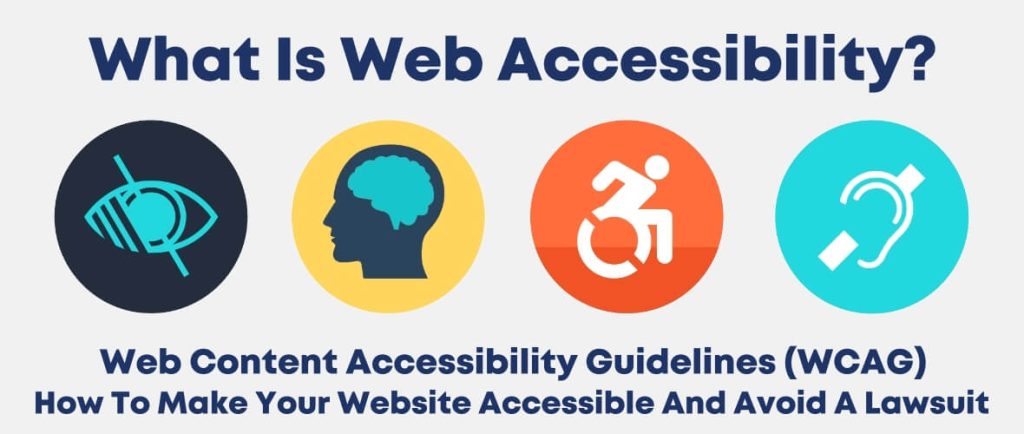
by Alan Aldous
In today’s world, having a website is essential to running a business. It’s a critical tool that allows businesses to connect with their customers, showcase their products and services, and generate leads. However, many business owners must realize that their websites can exclude many potential customers. People with disabilities make up a substantial portion of the population, and as such, businesses are responsible for ensuring their website is accessible to everyone, regardless of their ability. Failure to do so could have serious consequences.
The Americans with Disabilities Act (ADA) and the Canadians with Disabilities Act (ACA) are laws that require businesses to make their websites accessible to people with disabilities. In addition, these laws mandate that all websites must be designed, developed, and maintained to make them accessible to individuals with disabilities, including those who are blind, deaf, or have mobility impairments.
Businesses need to be compliant with the ADA and ACA. This is not just a moral and ethical issue; it’s also a legal one. The ADA and ACA can impose heavy fines and penalties on businesses that fail to comply with their guidelines. In the case of the ADA, companies could face legal consequences in the tens of thousands of dollars. The ACA also imposes heavy penalties on businesses that fail to comply with its guidelines. The maximum fine for non-compliance in Canada is $250,000.
Aside from the financial consequences, businesses that fail to make their website accessible to people with disabilities also face damage to their reputation. In today’s world, people are becoming increasingly aware of the importance of accessibility. As a result, a business that fails to make its website accessible to people with disabilities comes across as discriminatory and unprofessional. This can lead to negative reviews, loss of customers, and, ultimately, a decline in revenue.
Another essential factor is the deadline associated with ADA and ACA compliance. The deadline for ADA compliance was January 1, 2021. This means that all businesses in the United States must have a website that complies with the ADA guidelines. However, the ACA deadline is fast approaching. As of January 1, 2022, all Canadian businesses must have a website compliant with the ACA guidelines. Failure to comply with these deadlines could result in heavy fines and penalties.

The benefits of ADA and ACA compliance are numerous:
There are many reasons a business would be inclined to make its website accessible apart from just being the right thing to do.
To ensure compliance with the ADA and ACA, businesses must work with a digital marketing agency specializing in ADA and ACA compliance. Alan Aldous is one such agency that provides these services. They have a team of experts who are well-versed in the guidelines and regulations of the ADA and ACA. In addition, they offer various services, including website audits, website design and development, and ongoing website maintenance.
One of the services that Alan Aldous provides is website audits. A website audit is essential to ensure ADA and ACA compliance. It involves a thorough review of the website to identify any accessibility issues. The audit will identify website areas inaccessible to people with disabilities, such as missing alt text on images, non-descriptive links, and non-compliant colour contrast. Once the audit is complete, the team at Alan Aldous will provide a detailed report that outlines the issues and recommends steps to address them.
Another service that Alan Aldous provides is website design and development. Once the audit is complete, the team will work on designing and developing a website accessible to people with disabilities. This includes ensuring the website is easy to navigate, has descriptive links, and uses proper colour contrast. They will also make the website compatible with screen readers and other assistive technologies.
Finally, Alan Aldous provides ongoing website maintenance.
Are you interested in a free website compliance audit? Alan Aldous can help.
Call us at +1 (844)-4-WEED-PR or fill out our contact form to book a 15-minute call with someone at Alan Aldous.
If you have a business site and want to make it ADA and CDA-compliant, there are a few things to consider: